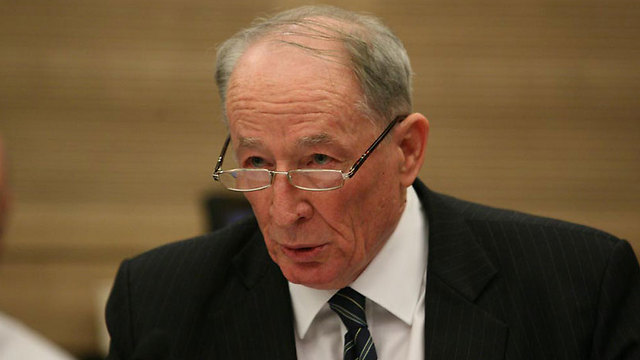
AG freezes Netanyahu's attempt to expand minimum wage ahead of elections
After Netanyahu makes surprise decision to extend newly reached minimum wage agreement to entire public sector, Attorney General stops move, citing proximity to elections.
Weinstein decided not to approve an extension order requested by Economy Minister Naftali Bennett to raise minimum wage in the public sector to NIS 5,000 ($1,274) a month.
"My position is that at the current timing this move is inappropriate," the attorney general wrote, explaining why he would not allow the request to expand an agreement reached between Israel's largest labor union and the industrialist sector to all public sector workers.
Netanyahu's decision to support the deal reached the union and was slammed as election economics, especially in light of Netanyahu's past objection to seeing the minimum wage raised.
Labor Chairman Isaac Herzog and Hatnua Chairwoman Tzipi Livni issued a joint statement on Thursday after the attorney general froze Netanyahu's attempt to pass a higher minumum wage and said, “Labor Secretary Eitan Cabel, will immediately approach all Knesset factions in order to promote legislation that will allow the minimum wage to be raised immediately, during this present session.”
“In contrast to Prime Minister Netanyahu, who all of a sudden realized he was social before the elections after the wages eroded dramatically during his tenure, we will lead a democratic process to raise the minimum wage.”
In a later statement by the Likud, the party said it had reached a deal with Labor to see the wage rise.
Yesh Atid praised the attoerney general for "stopping election bribery" - a term they have frequently used to describe a recent spree in economic legislation put forth by Netanyahu's small interim government.
At the time Netanyahu announced his support of the deal, Yesh Atid said that "this is the same prime minister who refused to be involved in negotiations on wages conducted under finance minister Lapid and who has served for six years and has not done a thing to lower the cost of living."
In 2010, Netanyahu objected to MK Amir Peretz's bill proposal to raise minimum wage to NIS 4,600 ($1,172) a month. However, in the wake of the summer 2011 social protest, he caved into public pressures and announced a list of moves, including raising the minimum wage to NIS 4,300 ($1,095) a month.
According to the Organization for Economic Co-Operation and Development, Israel's real minimum wage was the 12th highest among 25 countries in 2013.
In terms of the dollar, it was $14,291 a year in 2013, just behind the United States' $15,080. Israel's cost of living is high, however, and has lead to widespread protests in recent years.
Moran Azulay and Reuters contributed to this report











